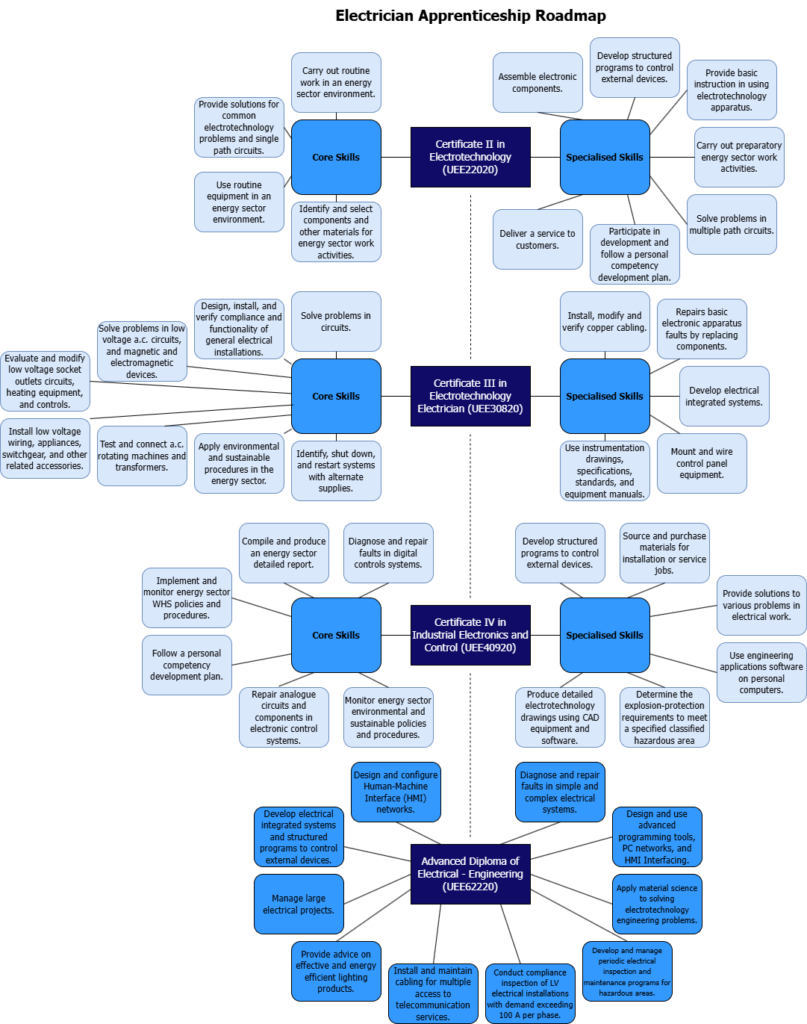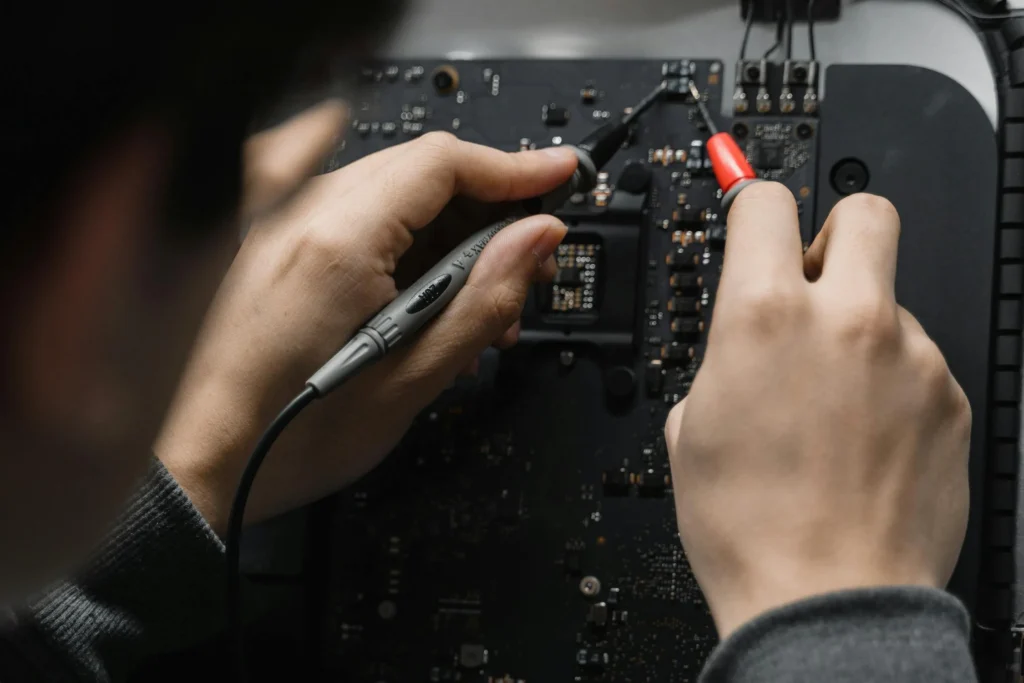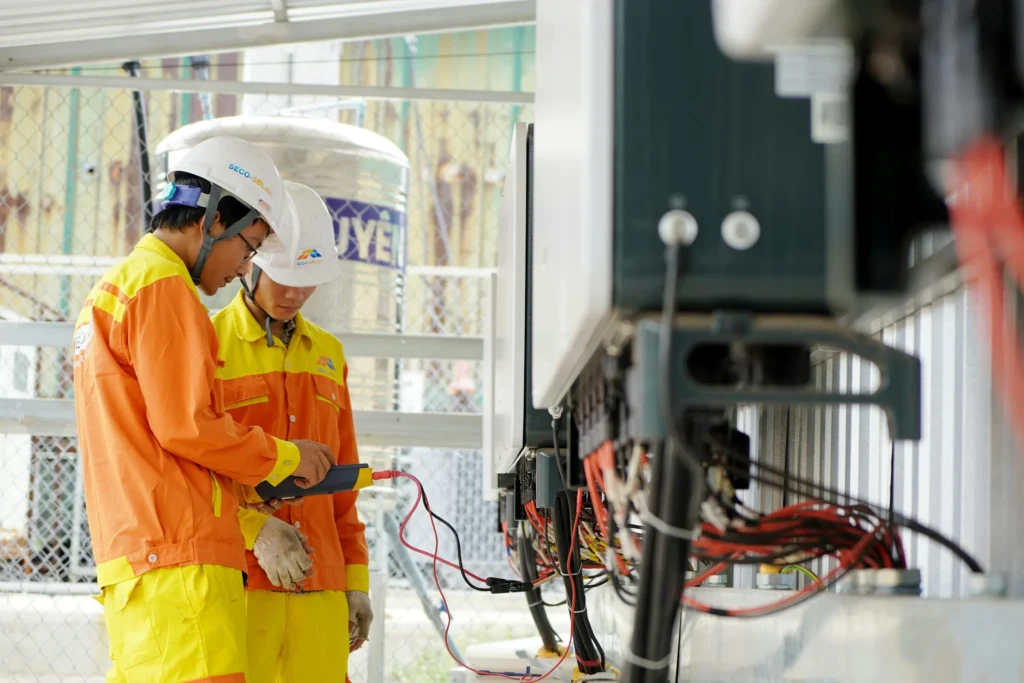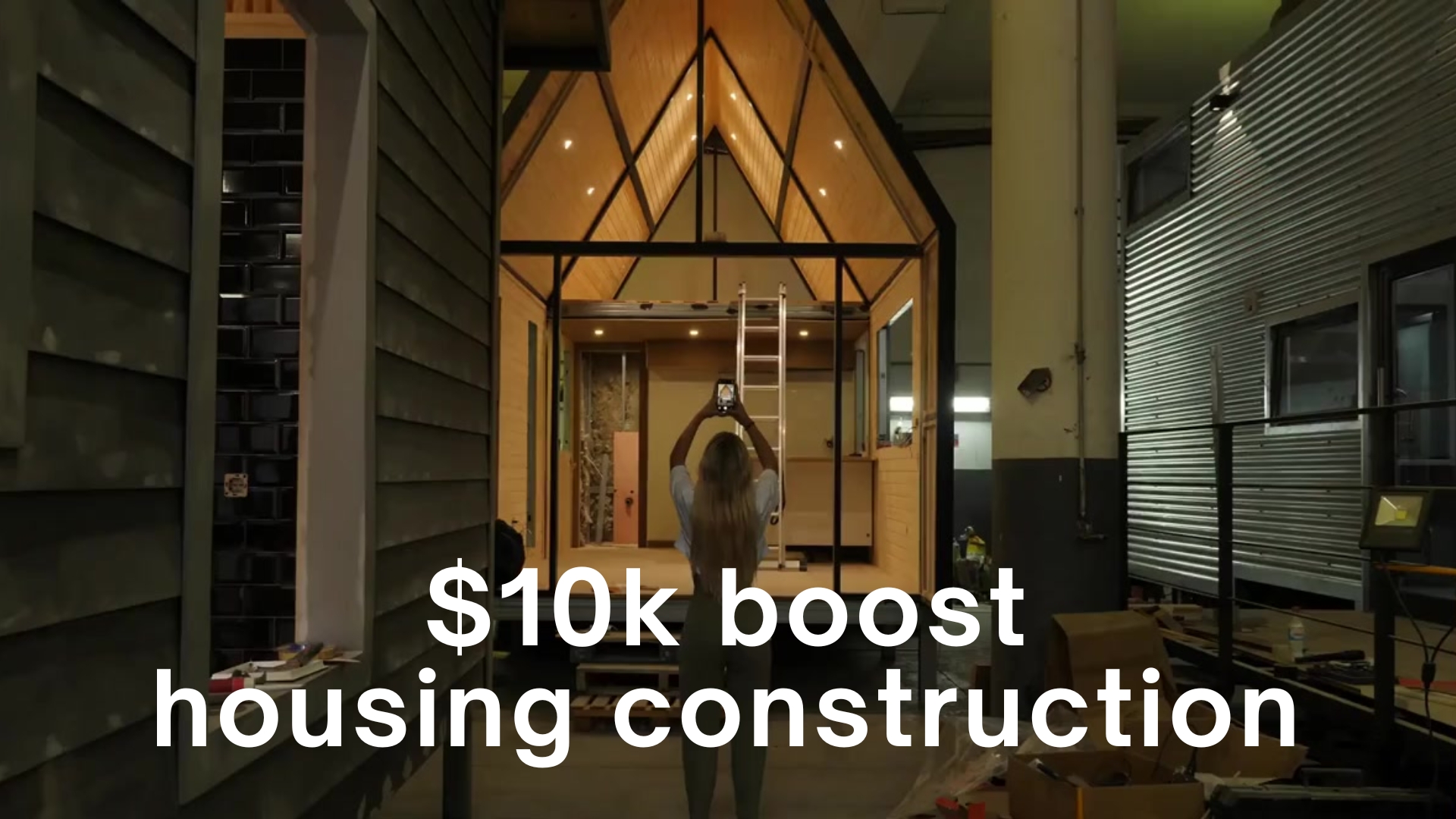Electrical & Electrotechnology Apprenticeship Pathway
Are you considering a career in the electrical industry?
Electrician apprenticeships are a great way to gain hands-on experience while earning a nationally recognised qualification. There are various certificates to choose from — from general electrical work, telecommunications, and automation, to renewable energy, including Certificate III in Air Conditioning and Refrigeration for those interested in climate control systems.
An apprenticeship in electrical work can open doors to a wide range of opportunities, including upskilling in emerging technologies.
In this guide, we’ll break down the electrician apprenticeship journey, including key qualifications, career specialisations, and long-term opportunities in the field.
The Electrician Apprenticeship Pathway
An apprenticeship for electricians is a good starting point for a hands-on career with strong job prospects. Through structured training and real-world experience, electrician courses can equip you with the skills to work in residential, commercial, and industrial electrical environments.

You can expect to acquire the following skills throughout the entire apprenticeship pathway:
- Install wiring systems, accessories, and appliances for low-voltage general electrical installations.
- Connect electrical circuits.
- Solve issues with electrical equipment.
- Use routine equipment/plant/technologies in an energy sector environment.
- Implement safe work practices.
- Fault find and fix digital and analogue circuits and components in electronic and digital control systems. (For those who prefer working with digital and analogue circuits, Certificate III in Electronics and Communications covers troubleshooting and maintaining communication systems.)
- Create and develop structured programs in programmable logic controllers (PLC) to control external devices.
- Use and operate engineering software programs.
- Develop and write engineering reports with relevant statistical analysis.
- Write specifications for electrotechnology and electrical engineering projects
- Develop design briefs and manage risk in electrotechnology activities
- Produce energy sector detailed reports
- Provide engineering solutions for complex electrical problems in power circuits.
Career Progression After Certification
After completing Certificates III and IV, there are multiple career pathways in electrical and electrotechnology fields. These roles can be, but are not limited to:
- Electrical Supervisor/Manager. They oversee teams of electricians, manage projects, and ensure safety and compliance.
- Project Manager. They manage large-scale electrical projects in construction, infrastructure, or renewable energy sectors.
- Electrical Engineer. They primarily design electrical systems, control systems, or electrical equipment.
But if you’re interested in leadership roles or branching out into related industries (like automation or renewable energy), pursuing a Diploma or Advanced Diploma can help accelerate your career growth.
Ongoing Professional Development and Licensing
To continue advancing in electrical and electrotechnology, professionals must maintain up-to-date knowledge of industry standards, safety regulations, and technology advancements. This often requires:
- Continual education. We advise enrolling in short courses to keep up with new technologies, such as smart homes or electric vehicles.
- An electrical licence. To work as a licenced electrician, apprentices must complete a White Card (general construction induction) and obtain a Registered Electrical Contractor (REC) licence after certification.
- Safety training. Regular training for electrical safety standards is required, especially in high-risk environments.

The Benefits of Pursuing an Electrical and Electrotechnology Apprenticeship
Choosing an electrician apprenticeship isn’t just about learning a trade, it’s about securing a future in one of the most in-demand industries in Australia. Starting an apprenticeship in electrical work is a smart career move because of:
A high demand for skilled electricians
Australia has many growing infrastructure projects, expanding renewable energy, and an increasing reliance on electrical systems. Electricians are needed across multiple sectors, from new housing developments to advanced industrial automation.
The ongoing shift toward solar power, battery storage, and electric vehicle (EV) infrastructure also drives demand for skilled workers in emerging technologies.
Strong job security
Electricians are essential workers. As industries evolve, there will always be a need for electrical installation, maintenance, and repairs. New buildings require wiring, electrical systems need to be upgraded over time, and telecommunications networks need to be maintained.
Qualified electricians enjoy stable, long-term career prospects. Even during economic downturns, skilled tradespeople remain in demand.
Competitive earning potential
A career in electrical and electrotechnology offers wage increases as you gain experience and qualifications.
Apprentices start earning while they learn, and after completing a Certificate III in Electrotechnology Electrician (UEE30820), they can work as licenced electricians with salaries that may go above the national average. Specialising in high-demand areas like instrumentation, automation, or renewable energy can further boost earning potential.
Diverse career pathways
One of the biggest advantages of an electrician apprenticeship is the multiple career paths available. Depending on your interests, you can work in:
- Residential Electrical Work: Installing and maintaining wiring, lighting, and security systems in homes.
- Commercial and Industrial Electrical Systems: Working on large-scale projects such as office buildings, factories, and power plants.
- Automation and Control Systems: Specialising in smart technology, robotics, and industrial automation. A Certificate III in Instrumentation and Control provides the foundation for working with smart technology and industrial automation.
- Telecommunications and Data Networks: Installing and maintaining data cabling, fibre optics, and wireless communication systems. A Certificate III in Telecommunications Technology is necessary and creates a good foundation for this career path.
- Renewable Energy and Sustainability: Specialising in solar, wind, and battery storage systems to support Australia’s green energy future.
The ability to future-proof skills in an evolving industry
New technologies shape the way electrical systems operate. Electricians are at the forefront of technological advancements, from smart home automation to EV charging stations. An apprenticeship equips you with skills that adapt to industry changes, so you can have long-term career growth.
How to Start an Apprenticeship in the Electrical and Electrotechnology Industry
- 1300apprentice connects you with a host employer – Instead of searching for an employer on your own, we match you with an electrical company or contractor.
- 1300apprentice enrols you in an accredited training program – Your apprenticeship includes both practical work and theoretical study. We organise your training with a Registered Training Organisation (RTO), such as TAFE, and guide you through the process. Certificate III in Electrotechnology Electrician is the standard pathway for those looking to become licenced electricians.
- Apprenticeship duration — Electrical and electrotechnology apprenticeships typically take 3 to 4 years. They blend structured coursework with real-world experience to help you develop the skills needed for a successful career.

Take the First Step Towards a Fulfilling Career
If you’re keen to start your journey as an electrical apprentice, 1300apprentice can help you find the right pathway.
Browse our apprenticeship opportunities or contact us to get started today!




